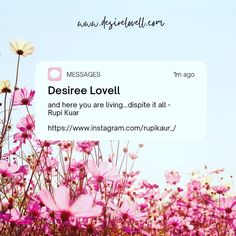
Friend WORK:
Friends are important.
Being a good friend and maintaining strong friendships requires care, effort, and thoughtfulness. Here’s a fun guide to keep those connections thriving! 😊
How to Be a Friend:
- Be a good listener 👂: Show genuine interest in their thoughts, feelings, and experiences. Put your phone down, make eye contact, and really hear them out.
- Show up for them 🎉: Whether it’s celebrating happy moments or offering support during tough times, your presence is key. Be there in person or send a thoughtful message to show you care.
- Be honest and kind 🗣️💖: Keep communication open. Share your thoughts, but always with kindness. True friends are honest, but never hurtful.
- Support their dreams 🚀: Encourage your friends’ goals and celebrate their achievements, no matter how big or small. Sometimes, a simple “You’ve got this!” means the world.
- Be reliable ⏰: If you make plans or promises, follow through. Trust is built on consistency.
How to Maintain Friendships:
- Regular check-ins 📲: A simple “Hey, how’s it going?” or “Thinking of you” can go a long way to show you care, especially if life gets busy.
- Shared experiences 🍕🎬: Whether it’s grabbing coffee, catching up over a meal, or binge-watching YouTube together, shared experiences strengthen bonds. Try creating playlists or sharing favorite channels that make you both laugh or inspire each other!
- Example YouTube channels to watch with friends:
- Yes Theory (Inspiring adventures and spreading positivity)
- Jubilee (Thought-provoking conversations)
- Dude Perfect (Fun challenges and laughter)
- Respect their space 🌿: Everyone needs alone time, and it’s important to respect that. Understand when your friend needs space and be there when they’re ready to reconnect.
- Keep the fun alive 🎉: Laughter is a powerful way to bond. Share memes, watch funny videos, or reminisce about old times to keep things light and joyful.
- Address conflict openly 🤝: Disagreements happen, and that’s okay! Talk it out with love and understanding. A mature conversation can strengthen your friendship.
- Grow together 🌱: Encourage each other to grow personally and in your interests. Whether it’s learning a new skill or tackling challenges together, growing as individuals keeps your friendship dynamic.
Final Thought:
Friendship is a two-way street! Be the friend you’d love to have, and your relationships will flourish. Don’t forget that it’s okay to let go of toxic friendships too—focus on those who uplift you. 💫
YouTube can be a great tool for staying connected with friends, sharing experiences, and even learning new things together. Whether it’s a shared love for a YouTuber or watching a tutorial on something you both enjoy, use it as a bonding tool! 🎥
What are some ways you’ve stayed connected with friends recently?
Maintaining relationships—whether friendships, family, or romantic—requires effort, empathy, and communication. Here are some key tips to keep relationships strong and healthy, with a focus on kindness and connection! 💛
1. Consistent Communication 💬
- Make time for regular conversations, even if it’s just a quick check-in.
- Share your thoughts, feelings, and experiences openly.
- Use video calls, phone calls, texts, or even voice messages to stay connected, especially if you’re far apart.
2. Practice Active Listening 👂
- Listen to understand, not just to respond.
- Show empathy by acknowledging their feelings and offering support.
- Give your full attention during conversations—avoid distractions and show that you value their words.
3. Show Appreciation 🌟
- Express gratitude for the other person and the role they play in your life.
- Small gestures of appreciation, like a heartfelt message or surprise treat, can go a long way in showing how much they mean to you.
- Never underestimate the power of a sincere “thank you.”
4. Respect Boundaries 🚧
- Everyone needs their own space and time for self-care, so respect each other’s boundaries.
- Understand when the other person needs alone time or a break, and don’t take it personally.
- Set your own boundaries clearly and kindly as well, so the relationship remains balanced.
5. Be Supportive 🤝
- Offer emotional support during tough times. Be a shoulder to lean on without trying to “fix” everything.
- Celebrate their victories and milestones, big or small! 🎉
- Encourage their personal growth, whether it’s learning a new skill or chasing their dreams.
6. Be Honest & Vulnerable ❤️
- Share your true thoughts and feelings, even when it’s difficult. Authenticity strengthens trust.
- Don’t shy away from tough conversations—address problems before they grow bigger.
- Vulnerability invites deeper connection, so let the other person in on your struggles, fears, and joys.
7. Make Time for Each Other ⏰
- Quality time is essential. Whether it’s a date night, family dinner, or a casual hangout, prioritize spending time together.
- Plan activities that you both enjoy, and create new memories!
- YouTube is a great tool for this—watch shows, learn together, or just share funny videos! 🎥
8. Apologize When Needed 🙏
- When misunderstandings happen, be quick to apologize if you were in the wrong.
- Show genuine remorse and commit to changing behavior where necessary.
- Forgive freely, understanding that everyone makes mistakes.
9. Keep the Fun Alive 🎉
- Don’t forget to laugh together! Humor is a great way to lighten the mood and bond.
- Share memes, play games, or even do fun challenges together.
- Plan exciting outings or try new hobbies to keep things fresh and fun.
10. Adapt and Grow Together 🌱
- Relationships change over time, and that’s natural. Be open to growth, both individually and together.
- Adapt to life’s changes—new jobs, moves, or other life events—without losing connection.
- Encourage each other to be the best versions of yourselves.
Summary:
Maintaining relationships takes intentionality, but the rewards are worth it! With kindness, respect, and open communication, you can nurture connections that last a lifetime. Whether you’re using tools like YouTube for shared experiences or simply making time to chat, staying connected strengthens the bond.
Remember, relationships should uplift and empower you, so always strive to create an atmosphere of love and positivity. 💖
Is there a specific relationship advice you can give us?
Healthy friendships have been shown to play a significant role in improving mental health, particularly in helping with depression and addiction recovery. Research indicates that supportive relationships offer several benefits:
1. Buffer Against Depression: Studies suggest that the perception of social support from friends can significantly reduce the risk of developing depression, especially for individuals with trauma or stressful life experiences. Simply feeling like there are people who care about and support you can help alleviate depressive symptoms. This type of support encourages positive coping mechanisms, such as talking through problems rather than avoiding them, which fosters resilience and emotional well-being .
2. Social Connection and Addiction Recovery: Addiction thrives in isolation, but social support can counter this. Positive friendships help prevent relapse by providing a source of emotional support and accountability. Friends encourage healthy behaviors and can assist in developing coping strategies for dealing with stress or cravings. Additionally, group therapy settings that focus on social connection are an important component of many addiction recovery programs .
3. Resilience and Coping: Close friendships enhance one’s ability to handle life’s challenges. People who actively engage with friends are better equipped to overcome hardships, in part because friendships foster resilience. By promoting active coping mechanisms (such as seeking help or sharing feelings), friendships can help individuals navigate difficult times, including those related to mental health or addiction recovery .These findings highlight the importance of cultivating and maintaining healthy friendships as a protective factor against both depression and addiction. Actively investing in these relationships can foster long-term emotional well-being.
But here on my tips on how we should find friends…
Find your friends just like we find healthy relationships…(which might be very few but high quality).
First Identify What Characteristics in a Friend are Important to You, then don’t waver from those characteristics.
Checklist of Characteristics for People Who Form Healthy Relationships
- Emotional Health & Stability
- Self-awareness: Understands their own emotions and reactions.
- Emotional regulation: Manages emotions well, especially during conflicts.
- Resilience: Bounces back from setbacks and doesn’t hold grudges.
- Effective Communication
- Active listener: Pays attention and validates others’ feelings.
- Open communication: Expresses thoughts and feelings honestly and respectfully.
- Constructive feedback: Provides feedback without being critical or hurtful.
- Trustworthiness & Integrity
- Honesty: Tells the truth even when it’s difficult.
- Dependability: Keeps promises and commitments.
- Moral principles: Acts with strong ethical values in personal and professional life.
- Empathy & Compassion
- Empathetic: Understands and shares the feelings of others.
- Supportive: Offers help and care during others’ tough times.
- Non-judgmental: Avoids making assumptions and appreciates different perspectives.
- Mutual Respect
- Respectful boundaries: Honors personal space and limits of others.
- Valuing differences: Appreciates and celebrates differences in opinions, cultures, and preferences.
- Equality: Seeks to build relationships where both sides are valued equally.
- Conflict Resolution Skills
- Problem-solving approach: Tackles issues without blaming or escalating situations.
- Compromise: Willing to meet in the middle for the greater good.
- Forgiveness: Moves forward after resolving conflicts without holding resentment.
- Healthy Independence
- Secure in themselves: Doesn’t rely on the relationship for validation.
- Balanced life: Maintains friendships, hobbies, and interests outside the relationship.
- Autonomy: Supports the independence of their partner or friend.
- Positivity & Optimism
- Positive outlook: Sees the good in people and situations.
- Encouraging: Motivates and uplifts others.
- Gratitude: Shows appreciation and affection regularly.
- Flexibility & Adaptability
- Open-minded: Accepts that things don’t always go as planned.
- Adaptable: Adjusts to new situations and can compromise when necessary.
- Willingness to grow: Continuously strives for self-improvement and encourages growth in others.
- Well-Adjusted & Secure
- Confidence: Secure in themselves without needing external validation.
- Healthy self-esteem: Maintains a balanced sense of self-worth.
- Personal growth: Actively works on becoming a better version of themselves.
Bonus: Good Relationship Practices
- Shared goals and values: Aligns on life goals and personal values with others.
- Equal give and take: Strives for balance in the relationship; giving and receiving support equally.
- Celebrates each other’s success: Takes joy in others’ achievements without jealousy.
These characteristics serve as a guide for individuals striving to create fulfilling, healthy relationships, whether personal or professional.
